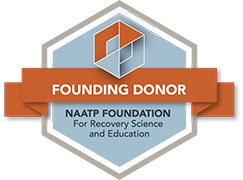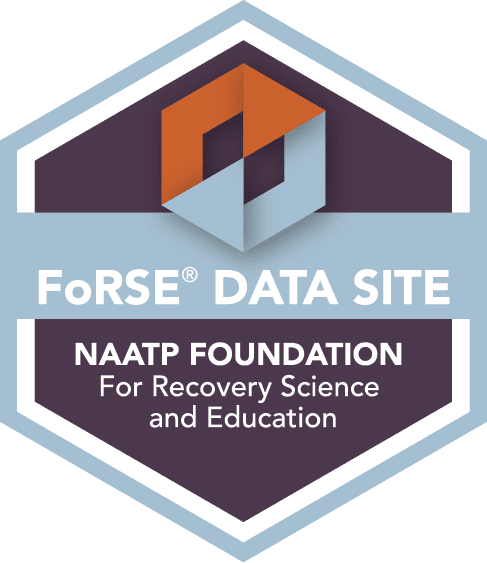Is There Any Such Thing As an Addictive Personality?
The idea of an addictive personality is misleading. There are many aspects to addiction and so far no one has identified a single personality profile for people who develop substance use disorders. What’s more, only about half of people with a substance use disorder have more than one addiction, excluding smoking. If an addictive personality were real, we would expect multiple addictions to be the rule, but half favor one specific substance or behavior. Believing that someone does or doesn’t have an addictive personality leads to complacency. Here are some more relevant ways for thinking about people with “addictive personalities.”
Genetic predisposition
Experts believe that about half of your risk for developing a substance use disorder is influenced by your genes. This is probably the biggest reason you are at higher risk for addiction if you have a close relative such as a parent or sibling who has struggled with addiction. We’ve been able to identify many genes associated with addiction. These are typically related to specific substances. For example, the A1 allele of the DRD2 dopamine receptor gene is more common in people addicted to alcohol or cocaine. Animal studies have found that mice without the Htr1b serotonin receptor gene are more attracted to cocaine and alcohol. And mice with a defective Per2 gene drink three times as much alcohol as normal mice. Other genes have been found to control sensitivity to different substances, including nicotine and opioids. The specific nature of these genetic differences probably explains why half of people with substance use disorders are partial to one substance.
It’s worth noting that while genes may predispose you to certain addictions, developing a substance use disorder is not inevitable. Protective factors like good parental examples, healthy family dynamics, close-knit communities, and good mental health care can keep genes from manifesting as addiction.
Co-occurring disorders
Co-occurring disorders are extremely common in people with substance use disorders. By most estimates, more than half of people with substance use disorders also have a mental health issue such as depression, anxiety, bipolar disorder, ADHD, OCD, PTSD, or schizophrenia. These all contribute to addiction in different ways, but some may bear superficial similarities that resemble an addictive personality type. For example, reckless behavior can be a symptom of depression, bipolar disorder, and ADHD. This kind of behavior can expose to you more addictive substances and make you neglect to consider the long-term consequences. Someone with ADHD, for example, might suffer some negative consequence as a result of excessive drinking and decide to quit drinking, but then forget all about it at the first opportunity to drink again. ADHD, OCD, and bipolar disorder may also involve compulsive behaviors, where the person can exert little control over his actions, perpetuating addictive behavior.
While there may be some superficial similarities among these conditions, they are actually very different. Someone with depression will behave very differently from someone with ADHD. What’s more, mental health issues can be fairly distinct from personality. Someone suffering an episode of major depression may have a vastly different personality when not depressed. The same is true for someone with bipolar who is not experiencing an episode of depression or mania.
Replacement addictions
Replacement addictions are simply replacing one addiction with another. Often, people who quit one addiction feel a void left by the addiction. Something that used to occupy much of their time is suddenly gone. They aren’t quite sure what to do with themselves. Also, depression is common after quitting many substances or even addictive behaviors. Addictions give you regular dopamine hits, which eventually causes your body to make less dopamine. Low dopamine is associated with depression and many people instinctively try to boost dopamine by picking up a new addiction. It may be a different substance or it may be something else entirely. It’s quite common, for example, for people to quit drinking and then develop an addiction for sweets. Someone else might start exercising for hours a day and someone else might start gambling. This kind of serial addiction typically indicates that the person has not addressed the root causes of her addiction, which is often trauma or a co-occurring mental health issue. However, to an outside observer, this serial addiction is chalked up to an “addictive personality.”
Specific personality traits
Although there is no single personality that characterizes people with substance abuse disorders, there are some specific personality traits that are common. When talking about personality, the Big Five is the model of personality most commonly used by psychologists. The five traits are openness to experience, conscientiousness, extraversion, agreeableness, and neuroticism, which you can remember by the acronym, OCEAN. Of these five, two traits–neuroticism and conscientiousness–seem to have some relevance to addiction. Most people who struggle with substance use disorders have relatively high levels of neuroticism. High neuroticism means you are prone to feeling negative emotions, such as pessimism, self-doubt, fear, anxiety, and anger. This makes sense when you consider that many people develop substance use disorders as a way of self-medicating depression and anxiety. However, it’s also worth noting that many highly neurotic people are also too scared to try substances they see as potentially dangerous or unhealthy.
The other trait often associated with addiction is low conscientiousness. While “conscientious” typically brings to mind someone who picks up litter, shows up on time, and files her taxes early, it actually has to do with emotional regulation, especially the ability to control impulses and delay gratification. Conscientious people are especially sensitive to social expectations. Someone who scores low on this trait is more likely to act on impulse and less likely to care about social or legal taboos on drugs or alcohol.
Although these two traits are often associated with addiction, they are not highly predictive and they are only two out of five traits, which means they are not an addictive personality, per se, but only traits common in people with substance use disorders.
Established in 1939, High Watch is the world’s first 12-Step treatment center. Every individual who walks through our doors joins a definitive culture of compassion, dignity, and respect from a genuinely caring staff dedicated to seeing the disease of addiction find remission. Providing proven therapeutic approaches and comprehensive 12-Step education, patients leave High Watch with the confidence to maintain abstinence and live a healthy, happy, sober life. Start your journey today by calling 860.927.3772.








